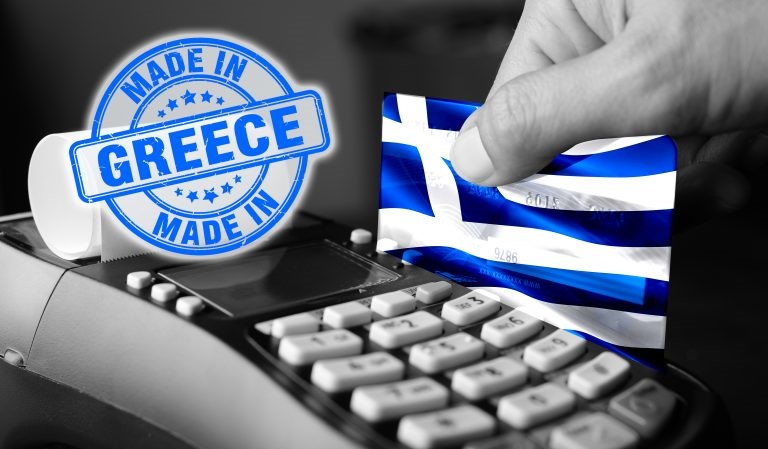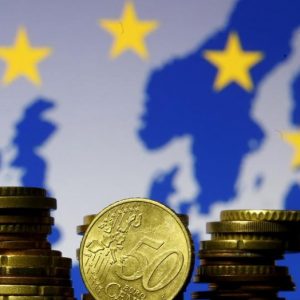Source: tovima.com

Why is ‘Made in Greece’ Label Disappearing?
Finally, Kapounis emphasizes that compared to other EU countries, Greece produces close to nothing, and there will be further degradation of the primary sector, whether it concerns fruits or vegetables
Spotlight
Greek fruits, beverages, or even clothing labeled ‘Made in EU’ and not ‘Made in Greece’? The discussion on how to indicate the origin of a wide range of products came to the surface during agricultural mobilizations in many countries of the continent, with Polish farmers and livestock breeders leading the way, chanting “We are Polish, we produce Polish goods.”
Polish producers stated that national origin should not be eliminated from their products and replaced by the indication “Produced in the EU,” as this would affect European consumers as well as the producers themselves who benefit from the added value of the product they produce.
In the same vein, their French counterparts also joined the wave, despite the tightening of labeling regulations on specific products; they desire the re-nationalization of rules regarding food labeling.
For decades, many European countries protected their domestic production by promoting local products with origin labels. However, this model faced challenges with the creation of the single European market and the need for broader protection against global powers like China and the USA. Exceptions were made, in the case of food products such as beef, honey, fruits, vegetables, fish, and olive oil with honey being added to the list recently where origin labels are required. Also, dairy products must indicate origin.
As explained by the President of the Union of Consumer Workers of Greece Apostolos Raftopoulos, the main demand is for the specific country of origin to be indicated, rather than the EU in general. “The country of origin must be clearly stated while ensuring quality controls” he points out.
On the other hand, the President of the Union of Agricultural Cooperatives of Naxos, Dimitris Kapounis, states that if EU labeling is ultimately extended, it will be another blow to the primary sector.
“Products from Greece cannot be labeled as ‘European Union’ because it opens the door to adulteration. Currently, we are inundated with French potatoes. If you look at import percentages, Egyptian potatoes stand at 90,000 tons and French potatoes at 78,000 tons, according to 2023 data. If this happens, there will be no Greek products, only ‘European’,” he says.
Finally, Kapounis emphasizes that compared to other EU countries, Greece produces close to nothing, and there will be further degradation of the primary sector, whether it concerns fruits or vegetables.”Our products need protection through controls, but also from the State itself,” he concludes.
Ακολουθήστε το in.gr στο Google News και μάθετε πρώτοι όλες τις ειδήσεις












































 Αριθμός Πιστοποίησης Μ.Η.Τ.232442
Αριθμός Πιστοποίησης Μ.Η.Τ.232442